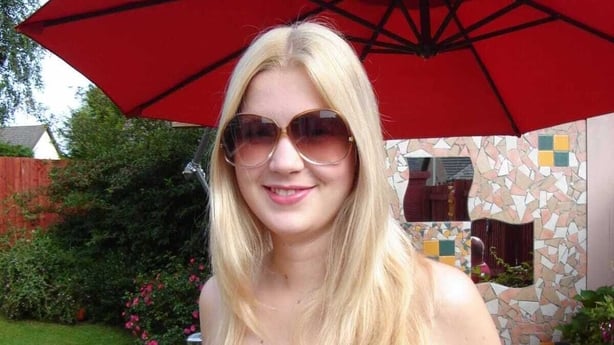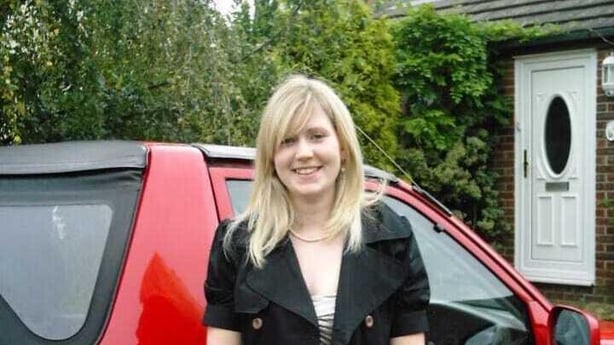You think you've heard it all. And then...
There are a number of remarkable features to the story of serial fraudster Samantha Cookes, sentenced to four years in jail with the final 12 months suspended at a court in Kerry earlier this week after she pleaded guilty to 18 counts of deception and theft.
They include the length of time Samantha Cookes has been able to get away with what she has been doing, the vulnerability of so many of her victims and the fact that their very vulnerability appears to have identified them to her as targets.
Most striking of all, though, is Samantha Cookes' apparent lack of empathy for those victims.
The deception and theft dealt with at the Circuit Criminal Court in Tralee on Wednesday ostensibly involved Social Welfare fraud: theft of 238 weekly supplementary welfare and disability allowance payments, totalling some €60,334.55.
The reality is, since arriving in Ireland in late September 2013, and even before that, she has been lying through her teeth, conning people in different communities over and over again.
People weren't blind to this: red flags were raised.

As early as her time in secondary school - not the Steiner School she claimed to have attended, but a secondary school in a suburb of Gloucester in England where she grew up - she had a reputation among her classmates of telling outlandish lies.
Her own mother even warned Samantha Cookes' teenage boyfriends that she was a notorious liar.
And, judging by the number of people who fell for her stories, she was good at it too.
We didn't learn these facts at the court on Wednesday, or at any of the previous court sittings since she was arrested outside the post office on Edward Street in Tralee on 12 July last year.
Most of these details came from a four-year investigation conducted by RTÉ Radio's Documentary On One team and its producers, Ronan Kelly and Liam O'Brien.
Intriguingly, Samantha Cookes turned that spotlight on herself, emailing the Doc On One team just before midnight on 8 April 2020 with a fantastic story about her diagnosis with Huntington's disease, a genetic, neurodegenerative illness which is usually terminal.
The email went on to describe how she had been misdiagnosed by a psychiatrist who was now in prison.
It alleged mistreatment by the Irish health system, said it would open doors into the Irish neurological wards which were filling up with young women like her, and finally offered the documentary team a front-row seat as she pursued her dream of experimental therapy in Los Angeles in the United States, where doctors were testing a treatment for Huntington's disease based on deep brain stimulation.
If it sounded too good to be true, it's because it was.
Samantha Cookes sold her story well, though. She was softly-spoken, bubbly and sweet.

How could someone labouring under such a devastating diagnosis be so seemingly upbeat about their situation? That was part of the attraction and, looking back now, she clearly played on it.
At this stage, Samantha Cookes was in the character of Carrie Jade Williams, an award-winning writer and self-styled disability rights campaigner living in south Kerry.
Carrie Jade Williams was one of many false names she had used.
She had already burnt through several other identities during her time in Ireland: Lucy Hart, Lucy Fitzwilliams, Rebecca Fitzgerald, Lucy Fitzpatrick.
Along the way, she had reeled people into her fantasy stories. In Dublin, families of children with additional needs collected €20,000 for a subsidised trip to Lapland which had never happened.
She passed herself off as, first, an expert in child therapy and, later, a child psychologist.
She told people she planned to open a women's refuge that simply never existed.
In the UK, prior to her move to Ireland, there was even worse. Her first baby, Martha Isobel, was born in 2008 and died tragically at the age of four months.
Three years later, in 2011, she offered to act as a surrogate mother for a couple who wanted to have a baby after failed IVF treatment.
She told the couple she was a former surrogate, even providing a reference from her previous client, which was bogus.
She accepted expenses and fees from the couple, who grew suspicious when she kept asking for more money.
The couple called in the police, Samantha Cookes was prosecuted, ordered to pay £1,800 to the couple and was given a nine-month suspended sentence.
Later, in Ireland, in 2019, while posing as a child psychologist, she deceived a father into paying her €840 for a report on a child who needed to be assessed for a special needs assistant.
Listen: The Real Carrie Jade
She was convicted in the District Court and received a 14-week jail term, which was suspended.
In all these cases, there was a marked absence of remorse.
In many of them, there was no evidence of remorse whatsoever. Where there was remorse, it came only after she had been caught.
As Carrie Jade Williams, living in south Kerry in 2020, she won - in this case, she really did - a prestigious essay-writing competition run by the Financial Times and The Bodley Head, the latter a division of publisher Penguin Random House.
Three months earlier, she was announced as a writer in residence at the Irish Writers Centre at Cill Rialaig in south Kerry.
The following year she was awarded the first of two Arts Council grants, this one was for €15,000. The second one was for €21,250.
Her media profile also grew. She was interviewed on local and national radio. International media engagements followed.
She was interviewed, for instance, on the UK-based podcast the Guilty Feminist.
A post on the social media site X shows her reading from her work at St John's Theatre and Arts Centre in Listowel in Co Kerry on 8 March 2022 to mark International Women's Day.
In a video in the post, she's talking about her terminal diagnosis and her death.
She makes it clear to her audience that they can laugh at her piece, if they wish, and she goes on to flippantly poke fun at what had transpired after the neurologist had broken the news of her diagnosis to her.
Separately, an interview which was streamed by a company which offers an online manuscript editing tool gives an insight into the character she morphed into as Carrie Jade Williams.
Introducing Carrie Jade Williams the interviewer describes her story as exceptional.
Samantha Cookes casually dismisses the characterisation: "I don't know if I'd say exceptional," she giggles with the interviewer.
With the benefit of hindsight, it's fascinating. Having sat three seats away from her during her sentencing hearing in Tralee on Wednesday, it's absolutely riveting.
The contrast is incredible, literally so.
On the online video, conducted with the interviewer over Zoom, she talks about her terminal diagnosis of Huntington's disease in such a detached and indifferent way that you would almost question if the diagnosis was hers.
Of course, we know now that it wasn't.
She presents on the video as bubbly and self confident, in stark contrast to the woman who sat in the dock at her sentencing hearing on Wednesday, with her shoulder turned away from the court and her head bowed, making eye contact with no one, shaking nervously throughout the half-hour sentencing hearing.
On a human level, it was impossible not to feel some sympathy for her.
But then, there were so many victims for whom she failed to show the same sympathy, only walking out and disappearing before or at the point she was about to be unmasked as a fraud.
In her wake, she often left a mess, leaving the owners of her apartments with repair bills that ran to thousands of euro.
At the Circuit Criminal Court in Tralee on Wednesday, Samantha Cookes was sentenced after she pleaded guilty to 18 counts of deception and theft.
The court was told she convinced a respected GP to fill out a form for her, saying she had already been diagnosed with Huntington's disease.
She then used this form to claim her first payments from the Department of Social Protection.
When department officials challenged her to provide supporting documentation she went on the attack, accusing them of "major discrimination".
The fraud was uncovered when gardaí were called in, obtained her medical records which revealed that she had failed to turn up for scans and medical appointments ordered by her GP, and she had undergone no genetic testing for Huntington's.

Samantha Cookes' barrister Richard Liston said she wanted to give a formal apology for her actions to the department and to the GP she deceived.
"A snowball of deception became an avalanche," Mr Liston said. "Matters got to such a stage, she found it difficult to go back."
Mr Liston was only referring to the social welfare fraud - the court wasn't dealing with anything else, and there was no mention of an apology to any of her other victims.
The stories continued, though.
Cookes wrote a letter to the court in which she alleged, with no supporting evidence, that she was suffering from psychosis.
The presiding judge, Ronan Munro, described this as a "self-diagnosis" and said he wasn't going to take it into account in his sentencing.
The maximum sentence Cookes faced was five years. She was most unlikely to get that, given her guilty plea.
In addition, Judge Munro explained that, rather than release her after a straight sentence, possibly to re-offend, he had decided to suspend the final year of the sentence for a period of four years on condition that she would be of good behaviour for that time.
He said he was doing this to encourage her to get treatment.
During sentencing, Judge Munro referred to the fact that, eventually, Samantha Cookes ran out of road.
It remains to be seen, though, if this is the end of the road for her.
You can listen to the RTÉ Radio 1 Doc On One podcast, The Real Carrie Jade, here







